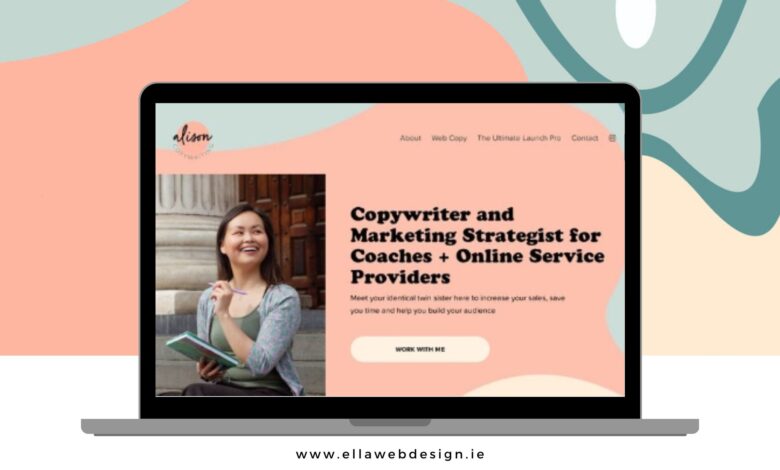Top Website Designers in Dublin: How to Find the Best for Your Project

When you’re ready to build or redesign your website, one of the most important decisions you’ll make is choosing the right website designer from Dublin. A website is often the first impression potential customers have of your business, making it essential to create a site that is not only visually appealing but also functional, user-friendly, and optimized for performance. In Dublin, a hub for technology and creative industries, there are numerous talented web designers available to help you achieve your goals. But how do you find the best one for your project?
In this article, we will guide you through the process of finding top website designers in Dublin, ensuring that your next web development project is a success.
1. Define Your Needs and Goals
Before you start searching for a website designer, it’s important to have a clear understanding of your goals and requirements. A well-defined brief will help you find a designer whose expertise aligns with your vision.
Key Considerations:
-
Purpose of Your Website: Are you looking for an e-commerce site, a blog, a portfolio, or a corporate site? Different designers specialize in different types of websites, so knowing the purpose of your site will help narrow down your search.
-
Target Audience: Who are you designing the site for? A designer with experience working with your target demographic will know how to create a site that resonates with them.
-
Design Style and Aesthetics: Do you have a particular design style in mind (e.g., minimalist, modern, or corporate)? Understanding the design direction will help you find a designer whose portfolio reflects the style you’re aiming for.
-
Budget: What is your budget for the project? Website design costs can vary widely, so it’s important to establish a budget upfront to ensure that the designers you approach are within your financial range.
By clearly defining your project’s scope and goals, you will be able to communicate your expectations more effectively and find the best match for your needs.
2. Search for Top Website Designers in Dublin
Once you have your goals in mind, it’s time to start your search. Dublin is home to many highly skilled web designers, ranging from freelancers to full-service agencies. Here are a few ways to begin your search for the best designers:
Online Directories and Platforms:
-
Clutch.co: A great platform for finding top-rated web design companies and freelancers in Dublin. You can browse reviews and ratings from previous clients, allowing you to evaluate the designers’ past work.
-
Behance: Many web designers showcase their portfolios on Behance. This is an excellent place to find designers whose work matches your style and needs.
-
Dribbble: Another great platform for finding design inspiration and browsing portfolios. You can search for specific types of websites or industries to find designers who specialize in your area.
Local Recommendations:
-
Word of Mouth: Ask other business owners, colleagues, or partners in your industry if they have worked with any web designers in Dublin. Personal recommendations can provide valuable insights into a designer’s reliability and skill set.
-
Social Media and Forums: Platforms like LinkedIn, Twitter, or Reddit can be helpful for seeking recommendations and browsing design portfolios.
Designer Websites:
Once you find a few designers or agencies you like, visit their websites to learn more about their services, process, and past work. A designer’s website can give you a great sense of their aesthetic, attention to detail, and professionalism.
3. Evaluate the Designer’s Portfolio
A designer’s portfolio is one of the best ways to evaluate their skills and expertise. Take the time to review their previous work carefully to see if it aligns with your vision and requirements.
Key Factors to Consider:
-
Diversity and Variety: Look for a portfolio that showcases a range of work across different industries and website types. This indicates the designer’s versatility and ability to adapt to different client needs.
-
Design Quality: Pay attention to the quality of design, layout, and user experience (UX) in the websites showcased in the portfolio. Does the design look modern, clean, and professional? Is it easy to navigate and visually engaging?
-
Functionality: A great website design isn’t just about aesthetics—it must also function smoothly. Check for examples of sites that are mobile-responsive, fast-loading, and optimized for performance.
-
Relevant Experience: While designers may have a wide range of projects in their portfolios, look for examples that are similar to your project. For instance, if you’re planning to create an e-commerce site, look for examples of successful e-commerce websites they’ve designed.
By evaluating a designer’s portfolio, you can gauge whether their design style, skills, and experience align with your goals for the website.
4. Consider the Designer’s Experience and Specializations
Web design is a broad field, and different designers specialize in various aspects of web development. Some may focus on the visual design, while others may be experts in back-end development, SEO, or e-commerce integration. It’s essential to choose a designer whose expertise aligns with your specific project needs.
Areas of Expertise to Consider:
-
Visual Design: If the look and feel of your website are paramount, you may want to work with a designer who specializes in UI/UX design and visual aesthetics.
-
Technical Skills: For complex websites with custom functionality or integrations, consider a designer who has strong technical skills in areas like HTML, CSS, JavaScript, and CMS (Content Management System) platforms like WordPress, Shopify, or Drupal.
-
SEO and Performance Optimization: A website is only valuable if people can find it. Choose a designer who understands SEO best practices and can optimize your site for search engines and fast loading times.
-
E-commerce: If you’re looking to launch an online store, look for a designer who specializes in e-commerce platforms like Shopify, WooCommerce, or Magento.
Make sure the designer has experience in the specific areas that matter most for your project, ensuring that the site will be both visually appealing and functional.
5. Check Client Reviews and Testimonials
Client reviews and testimonials are a powerful way to gauge a designer’s professionalism, reliability, and quality of work. Most reputable designers will have testimonials on their website or may provide references upon request.
Questions to Ask:
-
Did the designer meet deadlines and communicate effectively throughout the project?
-
Were the clients satisfied with the final product?
-
Was the designer receptive to feedback and open to collaboration?
Checking reviews and client feedback will help you determine if a designer is trustworthy and capable of delivering a high-quality product that aligns with your expectations.
6. Set a Budget and Discuss Pricing
Budget is a crucial consideration when hiring a website designer. Be transparent about your budget early in the process and ask designers to provide an estimate based on the scope of work.
What to Keep in Mind:
-
Cost vs. Value: While it’s tempting to go with the cheapest option, consider the value you’re getting for the price. A well-designed, functional website can significantly impact your business’s success, so it’s worth investing in quality.
-
Pricing Structure: Some designers charge hourly rates, while others may offer a flat fee for the entire project. Ensure that you understand the pricing structure and any additional costs (e.g., for maintenance, hosting, or ongoing support).
Having a clear discussion about budget will help you avoid surprises later on and ensure you select a designer who can deliver within your financial parameters.
7. Establish Clear Communication and Expectations
Effective communication is key to any successful collaboration. Make sure to establish clear communication channels, timelines, and expectations upfront. Discuss how often you’ll have check-ins, what feedback is needed from your side, and the overall timeline for the project.
What to Expect:
-
Timely Updates: Ensure the designer provides regular updates on the project’s progress.
-
Feedback Process: Agree on how feedback will be provided and how many rounds of revisions are included.
-
Post-Launch Support: Clarify whether the designer will offer ongoing support or maintenance after the website goes live.
By setting clear expectations at the outset, you can prevent misunderstandings and ensure that the project runs smoothly.
Conclusion
Choosing the right website designer from Dublin is a vital decision that will influence the success of your online presence. By defining your needs, evaluating portfolios, considering the designer’s expertise, and ensuring clear communication, you can find a talented designer who will create a website that not only meets your business goals but also exceeds your expectations.
Whether you’re launching a new business or redesigning your current website, finding the best website designer in Dublin can make all the difference in ensuring that your site stands out in a crowded digital marketplace.



